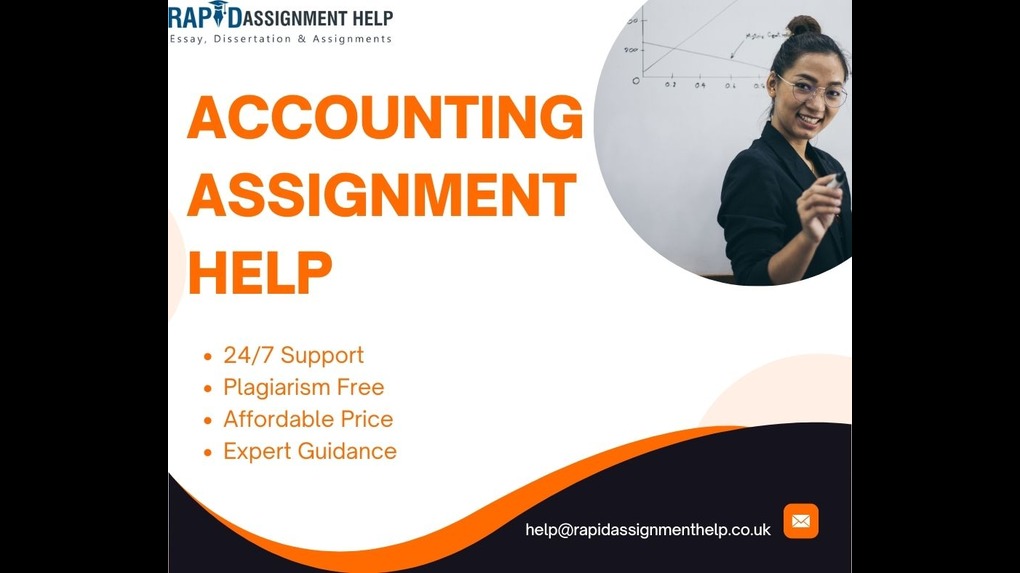Math Assignment Struggles? Try These Expert-Approved Tips!

Mathematics assignments often present a significant challenge for students across all educational levels. Whether it's complex algebraic equations, intricate calculus problems, or the logic-driven nature of geometry, many learners find themselves overwhelmed. If you're one of those students seeking mathematics assignment help, you're not alone. This guide offers expert-approved tips that can make a real difference in how you approach and excel in your math assignments.
Understanding Why Math Assignments Are Challenging
Before diving into the solutions, it's crucial to understand why students commonly struggle with math assignments:
- Abstract Concepts: Math deals heavily with abstract ideas that can be difficult to visualize or relate to real-world experiences.
- Cumulative Learning: Mathematics builds on previously learned concepts, making it challenging if earlier fundamentals are weak.
- Precision Required: A single error can render an entire solution incorrect, adding pressure and fear of failure.
- Time-Consuming: Math problems often require extended periods of concentration and effort.
Understanding these challenges helps in developing a strategy tailored to overcome them.
Tip #1: Strengthen Your Basics
The foundation of success in any math assignment lies in understanding the core concepts.
How to Strengthen Basics:
- Review Class Notes Regularly: Don't wait until the assignment is due.
- Practice Foundational Problems: Revisit earlier topics like arithmetic, algebra, or basic geometry.
- Use Visual Aids: Diagrams, graphs, and visual representations can help you grasp abstract ideas better.
- Ask Questions: Never hesitate to ask for clarification from teachers or peers.
Tip #2: Organize Your Work Environment
A cluttered workspace can distract you and hinder productivity. Creating a conducive study environment is essential.
Elements of an Ideal Study Environment:
- Quiet Space: Minimize noise to enhance concentration.
- Proper Lighting: Ensure your workspace is well-lit to reduce eye strain.
- Supplies Within Reach: Keep calculators, geometry sets, rulers, and other tools handy.
- Ergonomic Setup: Comfortable seating and desk arrangement can boost your efficiency.
Tip #3: Break Down the Assignment
Large math assignments can feel overwhelming. Breaking them into manageable parts makes them easier to tackle.
Steps to Break Down an Assignment:
- Read Instructions Carefully: Understand what is being asked.
- Identify Problem Types: Categorize them (e.g., algebra, trigonometry, statistics).
- Estimate Time Per Section: Allocate time based on complexity.
- Set Small Goals: Complete one type or a certain number of problems before taking breaks.
Tip #4: Practice, Practice, Practice
Practice is key in mastering mathematical concepts and improving problem-solving skills.
Effective Practice Techniques:
- Daily Problem Solving: Dedicate time each day to solve different types of problems.
- Timed Sessions: Use a timer to simulate exam conditions and improve speed.
- Mix Problem Types: Combine easy, medium, and difficult problems in your practice.
- Redo Incorrect Problems: Understand where you went wrong and try again.
Tip #5: Use Online Tools and Resources Wisely
Technology can be an excellent ally if used wisely. Various tools can help you understand and solve math problems better.
Recommended Tools and Methods:
- Graphing Calculators: Visualize complex functions.
- Equation Solvers: Understand step-by-step solutions (use them for learning, not copying).
- Video Tutorials: Learn from visual explanations of difficult topics.
- Mathematics Software: Programs like GeoGebra or MATLAB can help with advanced concepts.
Tip #6: Develop a Problem-Solving Mindset
Mathematics is not just about numbers; it’s about thinking logically and solving problems creatively.
Cultivating the Right Mindset:
- Stay Positive: Confidence can greatly impact performance.
- Think Step-by-Step: Break the problem into smaller logical steps.
- Look for Patterns: Identifying patterns can simplify complex problems.
- Don’t Fear Mistakes: Errors are a vital part of the learning process.
Tip #7: Join Study Groups
Collaboration can be very effective when done correctly.
Benefits of Study Groups:
- Peer Explanation: A friend might explain a concept better than a textbook.
- Motivation Boost: Studying together can increase accountability.
- Different Perspectives: Group members may offer various approaches to solving problems.
- Shared Resources: Exchange notes, textbooks, and helpful tools.
Tip #8: Stay Consistent with a Study Schedule
A well-maintained study schedule can help you avoid last-minute cramming and anxiety.
Creating a Study Plan:
- Set Specific Goals: Define what you aim to achieve in each session.
- Prioritize Difficult Topics: Spend more time on challenging areas.
- Include Breaks: Short breaks improve focus and productivity.
- Track Progress: Use a planner or app to keep tabs on what you’ve completed.
Tip #9: Communicate with Your Instructor
Instructors are there to help. Don’t hesitate to seek their guidance.
How to Approach Instructors:
- Be Specific: Clearly state the problem or concept you’re struggling with.
- Show Effort: Demonstrate what you’ve already tried.
- Request Extra Help: Ask for additional resources or office hours.
- Follow Up: Keep your instructor updated on your progress.
Tip #10: Manage Stress and Stay Healthy
Stress can severely impact your ability to perform in math assignments.
Tips for Managing Stress:
- Exercise Regularly: Physical activity boosts mental health.
- Sleep Well: Aim for 7-9 hours of sleep each night.
- Eat Balanced Meals: A nutritious diet helps in concentration.
- Practice Mindfulness: Techniques like meditation and deep breathing can reduce anxiety.
Bonus Tips for Different Math Topics
Here’s how to tackle specific types of math problems more effectively:
Algebra:
- Focus on understanding variables and equations.
- Use substitution and elimination techniques in systems of equations.
- Practice factoring regularly.
Geometry:
- Memorize key formulas for area, volume, and perimeter.
- Use diagrams and sketch problems.
- Understand theorems and postulates.
Calculus:
- Understand limits before diving into derivatives and integrals.
- Practice the chain rule, product rule, and quotient rule.
- Visualize functions and their changes.
Statistics:
- Know how to interpret data sets.
- Understand mean, median, mode, and standard deviation.
- Practice using probability formulas.
Conclusion
Struggling with math assignments is a common experience, but it doesn't have to be a permanent one. By applying these expert-approved tips, from strengthening your basics to maintaining a positive mindset, you can dramatically improve your performance. Remember, seeking mathematics assignment help is not a sign of weakness but a smart step towards academic success. Stay consistent, use the right strategies, and gradually, math will become less of a hurdle and more of a skill you master with confidence.
Note: IndiBlogHub features both user-submitted and editorial content. We do not verify third-party contributions. Read our Disclaimer and Privacy Policyfor details.







